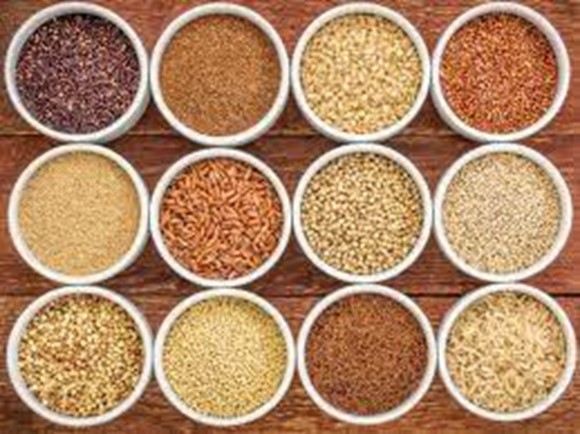A nurse is providing teaching to a client who has a prescription for a low-saturated fat diet. Which of the following statements by the client indicates an understanding of the teaching?
"I can choose an avocado dip instead of salsa."
"I can eat the skin on poultry if it is broiled."
"I will use margarine on my waffles."
"I will include 7 ounces of fish in my diet weekly."
The Correct Answer is A
Choice A rationale:
The client's statement, "I can choose an avocado dip instead of salsa," indicates an understanding of the teaching about a low-saturated fat diet. Avocado is a source of healthy monounsaturated fats, which are preferred over saturated fats. This choice aligns with the goal of reducing saturated fat intake, which is important for cardiovascular health. Avocado dip is a better choice than salsa in this context due to its healthier fat content.
Choice B rationale:
The statement "I can eat the skin on poultry if it is broiled" is not indicative of an understanding of a low-saturated fat diet. Poultry skin is high in saturated fat, and even though broiling is a healthier cooking method compared to frying, the saturated fat content in the skin remains a concern.
Choice C rationale:
The statement "I will use margarine on my waffles" is not aligned with the teaching of a low-saturated fat diet. Most margarines contain trans fats or unhealthy saturated fats, which can be detrimental to cardiovascular health. Using margarine on waffles would likely contribute to the intake of unhealthy fats.
Choice D rationale:
The statement "I will include 7 ounces of fish in my diet weekly" does not reflect an understanding of a low-saturated fat diet. While fish is generally a healthy protein source, this statement doesn't specifically address saturated fat reduction. The type of fish and its preparation method can influence the saturated fat content, so simply including a certain amount of fish does not guarantee adherence to a low-saturated fat diet.
Nursing Test Bank
Naxlex Comprehensive Predictor Exams
Related Questions
Correct Answer is B
Explanation
Choice A rationale:
Decreasing intake of omega-3 fatty acids would not be recommended for promoting cardiovascular health. Omega-3 fatty acids are essential fats that have been shown to have various heart-protective effects, such as reducing inflammation, lowering triglyceride levels, and improving overall cardiovascular health.
Choice B rationale:
Increasing the intake of whole grains is a sound recommendation for promoting cardiovascular health. Whole grains are rich in dietary fiber, vitamins, and minerals. They can help lower cholesterol levels, improve blood sugar control, and contribute to a healthy cardiovascular system.

Choice C rationale:
Decreasing the intake of potassium is not advisable for cardiovascular health. Potassium is a mineral that plays a crucial role in maintaining proper heart and muscle function. Adequate potassium intake can help regulate blood pressure and reduce the risk of stroke.
Choice D rationale:
Increasing the intake of refined carbohydrates is not a suitable recommendation for cardiovascular health. Refined carbohydrates, such as sugary snacks and white bread, can lead to spikes in blood sugar levels, weight gain, and an increased risk of heart disease.
Correct Answer is B
Explanation
The correct answer is choice B. “Consume foods that are high in calcium.”
Choice A rationale:
The DASH diet recommends limiting sodium intake to no more than 2,300 milligrams per day, and ideally to 1,500 milligrams per day for greater blood pressure reduction. Therefore, 3,200 milligrams per day is too high.
Choice B rationale:
Consuming foods high in calcium is part of the DASH diet, which emphasizes the intake of fruits, vegetables, and low-fat dairy products to help lower blood pressure.
Choice C rationale:
The DASH diet advises reducing saturated fat intake to less than 6% of total daily calories. Ten percent is higher than recommended.
Choice D rationale:
The DASH diet encourages the consumption of whole grains and discourages refined carbohydrates, which can contribute to higher blood pressure and other health issues.
: WebMD - DASH Diet Foods for High Blood Pressure
Whether you are a student looking to ace your exams or a practicing nurse seeking to enhance your expertise , our nursing education contents will empower you with the confidence and competence to make a difference in the lives of patients and become a respected leader in the healthcare field.
Visit Naxlex, invest in your future and unlock endless possibilities with our unparalleled nursing education contents today
Report Wrong Answer on the Current Question
Do you disagree with the answer? If yes, what is your expected answer? Explain.
Kindly be descriptive with the issue you are facing.
